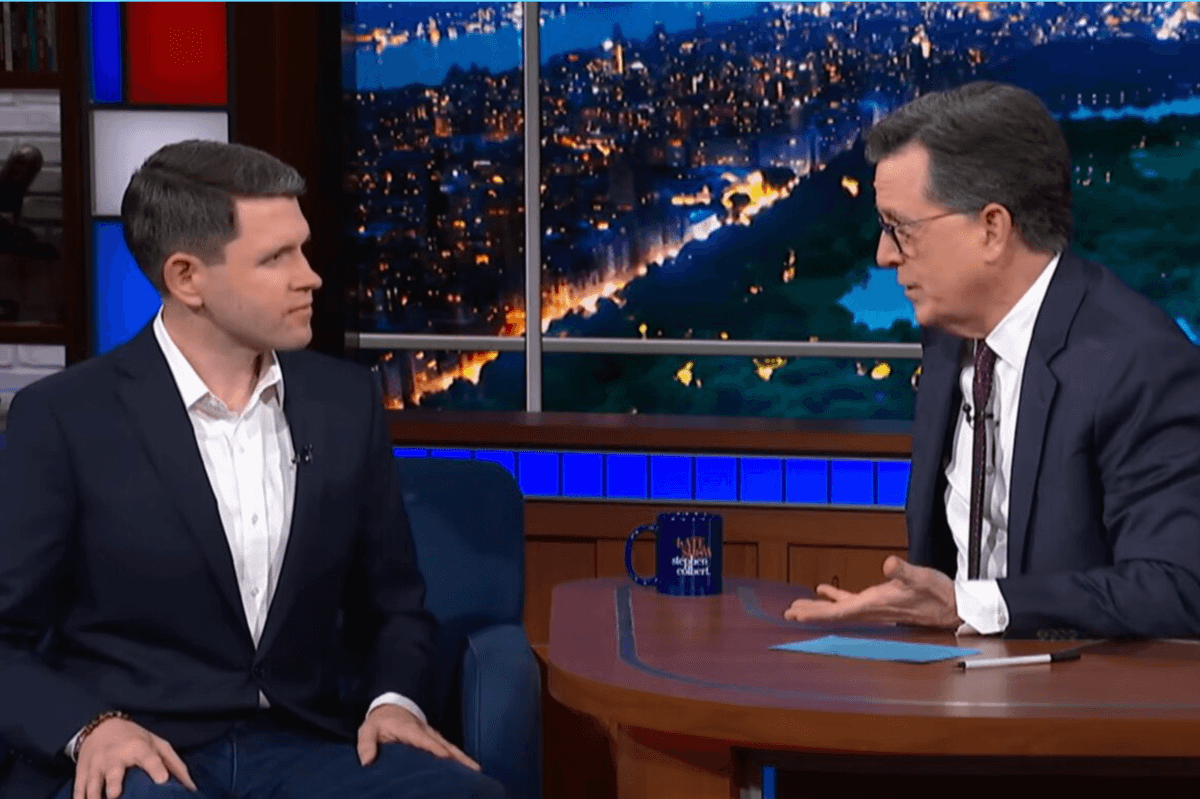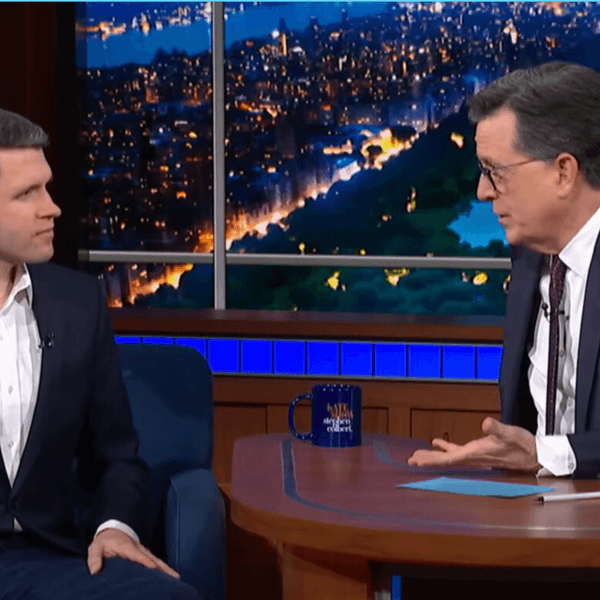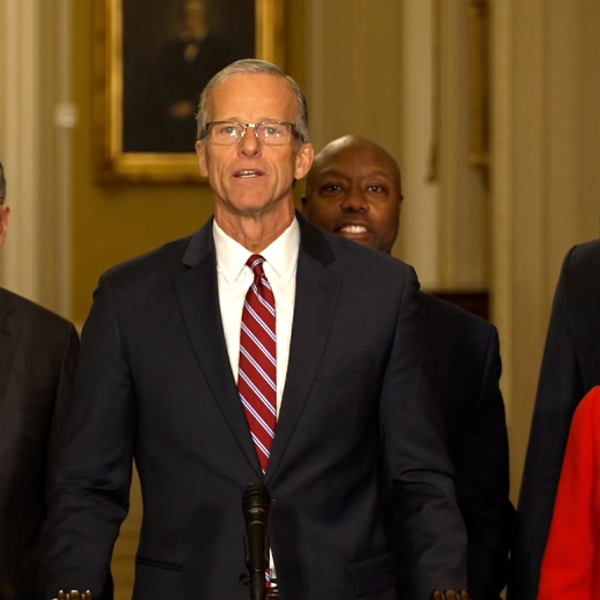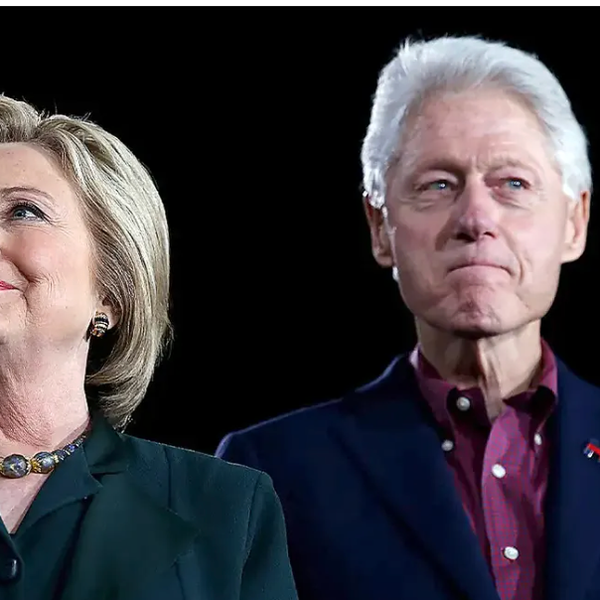Texas State Rep. James Talarico, left, and Stephen Colbert on 'The Late Show' on February 16, 2026
If you wanted a textbook example of the Streisand Effect, look no further than the Trump administration’s meddling in the Texas Senate race.
CBS News refused to air late night host Stephen Colbert’s interview with Democratic Texas state Rep. James Talarico, who is currently locked in a competitive Senate primary with Rep. Jasmine Crockett (D-TX).
Colbert said that CBS' lawyers feared retribution from the Federal Communications Commission, claiming that the interview could be seen as a violation of the equal-time rule.
Never mind the fact that it's a bullshit excuse, as Crockett has already appeared on Colbert's show—not to mention, late-night comedy programs like Colbert’s aren’t even bound by the equal-time rule. But axing the interview drew even more attention to it than if CBS had just aired it in the first place.
The interview, which Colbert shared on his YouTube channel, amassed more than 2.6 million views at the time this article was written—about twice as many views as an interview with actor Jennifer Garner that was posted at the same time.
And data shows that Google search traffic for Talarico skyrocketed after Colbert revealed that he was blocked from airing the interview on CBS.

The search traffic even spiked in Texas, showing that potential voters now have their eyes on Talarico.

This is the exact opposite of the outcome desired by Republicans—who want to face off with Crockett, believing that she’s less electable than Talarico.
GOP Sen. John Cornyn, who is facing an uphill battle in a primary of his own with Texas Attorney General Ken Paxton, ran an operation to lure Crockett into the race for this very reason.
Whether or not Crockett is less electable than Talarico is debatable. But if Republicans really do want to face off with Crockett, then raising Talarico's profile on the very day that early voting begins is one of the most boneheaded moves they could have made.
Polling shows that the race is close, with Crockett leading Talarico by three points in FiftyPlusOne's average. But making Talarico into a resistance hero right as voters start heading to the polls could certainly give him a boost.
The Texas primary ends on March 3, so we’ll soon know whether this helped propel Talarico to victory.
And if it did, it will be a major self-own by the Trump team.
Reprinted with permission from Daily Kos









